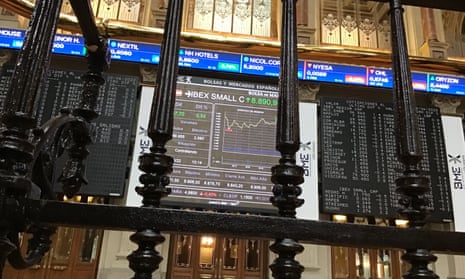The Opec oil cartel and its allies have agreed to ramp up production of crude amid a surge in global demand, but did not exclude Russia from contributing to future increases despite its invasion of Ukraine.
Ministers representing Opec’s 13 members and 10 non-Opec producers led by Russia, a grouping called Opec+, said on Thursday they would increase output by nearly 650,000 barrels a day in July and August, nearly two-thirds more than previously planned rises of about 400,000 barrels a day.
Reports earlier in the week had suggested the cartel was considering excluding Russia from future quotas, in a move that could have paved the way for Saudi Arabia and the United Arab Emirates to pump more oil, but Opec stopped short of the move.
Brent crude prices rose slightly after the announcement, up 0.5% at $116.94 a barrel.
Opec members said they had “noted the most recent reopening from lockdowns in major global economic centres”, but failed to mention the fallout of the Ukraine conflict, which has led to oil embargos against Russia and driven demand for oil from other producers. The easing of Covid lockdowns around the world has also added to pressure on fuel supplies.
Surging demand has sent energy prices soaring, pushing inflation to a 40-year high in the UK, and fuelling a cost of living crisis that has left many households struggling to cover basic costs.
Thursday’s meeting was the first since the EU agreed a partial embargo on Russian crude earlier this week in hopes of “cutting a huge source of financing for its war machine”.
While the sanctions will immediately hit 75% of Russian oil imports to the EU, and impact on 90% by the end of the year, oil transported through the critical Druzhba (“friendship”) pipeline will be exempt from the ban. That was a key concession to Hungary and other central EU states including the Czech Republic and Slovakia, which are heavily dependent on Russian oil.
Bloomberg Economics has calculated that Moscow would still receive $285bn (£226bn) this year for its fossil fuel exports, including gas on which European countries rely heavily.
However, the EU has also reached an agreement with the UK to ban insurers from covering ships transporting Russian oil, in order to make it more difficult for the country to export energy supplies.
